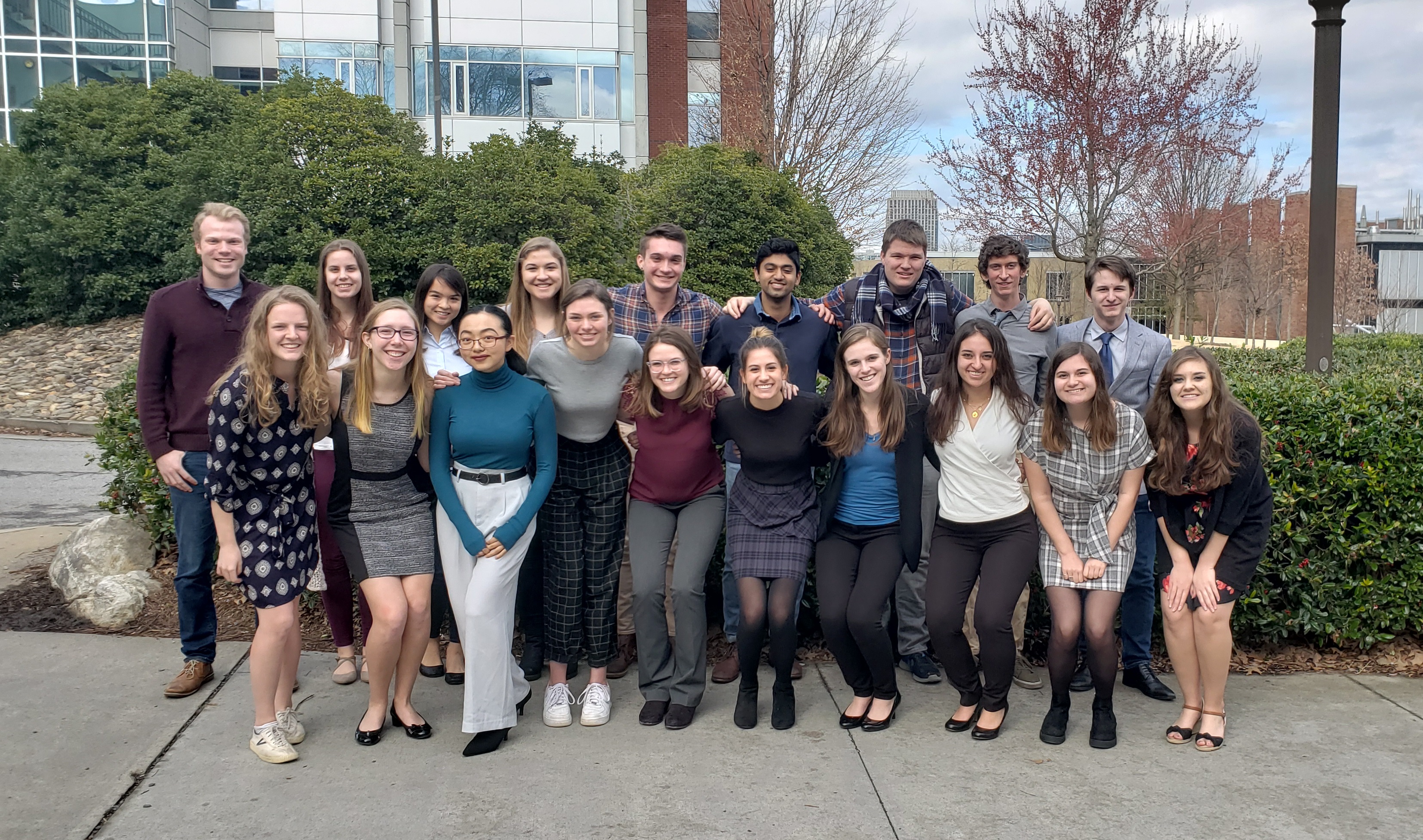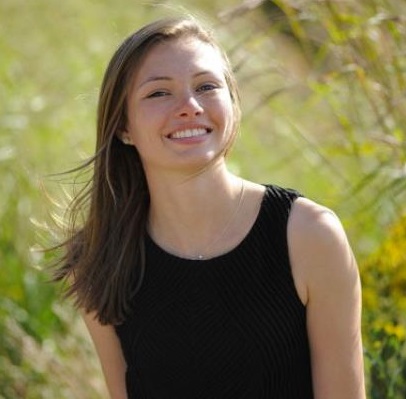

The Intercollegiate Mental Health Conference (IMHC) aims to gather the best practices on mental health from college campuses across the nation. IMHC will bring together campus leaders to share those practices and develop solutions to relevant issues. This will empower mental health leaders with the knowledge necessary to create and implement successful solutions to challenges shared with other campuses.
| FRIDAY: Registration | |
|---|---|
| 1:00PM-3:00PM | Registration |
| 3:00PM-5:00PM | Georgia Schools: Panel on Mental Health Resource Accessibility Non-Georgia Schools: Registration/Tours |
| 5:00PM-6:00PM | Georgia Schools: Breakout/Discussion Non-Georgia Schools: Registration/Tours |
| 6:00PM-8:00PM | Mental Health Vendor Showcase |
| 8:00PM-9:00PM | Dinner/Networking Event |
| SATURDAY: Topic Day | |
|---|---|
| 8:00AM-9:00AM | Breakfast |
| 9:00AM-9:30AM | Keynote: Education and Awareness |
| 9:30AM-10:30AM | Breakout |
| 10:30AM-11:30AM | Breakout |
| 11:30AM-12:00PM | Keynote: Multidisciplinary Initiatives |
| 12:00PM-1:00PM | Breakout |
| 1:00PM-2:00PM | Lunch |
| 2:00PM-2:30PM | Keynote: Vulnerable Populations |
| 2:30PM-3:30PM | Breakout |
| 3:30PM-4:30PM | Breakout |
| 5:00PM-7:00PM | Best Practices Showcase and Reception |
| SUNDAY: Case Studies Day | |
|---|---|
| 8:00AM-9:00AM | Breakfast/Opening to Case Studies |
| 9:00AM-11:00AM | Case Studies |
| 11:00AM-12:00PM | Presentation of Ideas |
| 12:00PM-12:30PM | Closing |
IMHC will be held at the Georgia Tech Hotel and Conference Center from February 15-17, 2019. For more information on the venue click here.
Georgia Panel on Mental Health Resource Accessibility
This panel will focus on resource accessibility for students through three key perspectives:
Mental Health Vendor Showcase
This event will feature vendors from industry to academia showcasing nouveau approaches to improve mental health. Whether it be a mindfulness app or a meta-analysis on telemental health services, vendors will provide a unique perspective to how we approach mental health.
Breakout Sessions
Breakout sessions will typically consist of round-table style discussions with a moderator to ensure productivity. Questions from the moderator will be released to participants before the event. Notes will be taken throughout the discussion to be included in the Best Practices Manual. When attendance is finalized in January, we will release a survey to indicate subtopic preferences and assign participants accordingly.
Best Practices Showcase
This showcase will allow each institution to highlight a best practice they would like to be shared nationally. Each school is required to submit a poster. The showcase will also serve as a networking event for leaders in mental health to connect and foster collaboration.
Case Studies
The last day of the Conference will draw upon participants' expertise to solve case studies. Case studies provide a practical implementation of knowledge gained over the course of the Conference.
JED Foundation, Chief Clinical Officer
Georgia Department of Behavioral Health and Developmental Disabilities
Georgia Tech Research Institute
CEO of Behavioral Health Link
Director for Georgia Tech Counseling Center
Georgia Tech Vice President for Institute Diversity
Executive Director for Georgia's National Alliance on Mental Illness (NAMI)
Director for Mental Health Student Coalition at Georgia Tech
Attendees
We request seven attendees from each school with the following stipulations:
Fees
Our goal is to provide the lowest barrier to entry possible for
our attendees. This Conference was generously funded by Georgia
Tech's Joint Allocations Committee, a $1,000,000 fund for mental
health initiatives created by our student government and
administration after the tragic shooting of Scout Schultz.
Rooms and meals, except for dinner on Saturday, will be provided
free of charge to all attendees. Each attendee must cover their
own costs for transportation.
Best Practices
For Best Practices, please review the documents provided here.
Timeline

Mental Health Student Coalition
In 2013 a collection of leaders from the Student Government Association released a white paper on mental health at Georgia Tech. Contained within it was a critical analysis of factors that contribute to Tech's depressogenic environment. In response, the President of the institute commissioned the first Mental Health Task Force to further investigate and generate recommendations on mental health. After the team had completed their task, several student leaders banded together to form what is now known as the Mental Health Student Coalition. Our role is to innovate and advocate for changes in policies and programs that improve the mental health of students. We work closely with student leadership, administration, mental health resources, and faculty on campus in all of our endeavors. While the original membership has graduated, we have always functioned in the spirit of that first Task Force.
MHSC Executive Board
Collin Spencer
DirectorElena Buter
Logistics Committee Co-ChairAndrew Grissom
Logistics Committee Co-ChairKatie Ferguson
Programming Committee Co-ChairHannah Keatley
Programming Committee Co-ChairKristen Vossler
Outreach Committee ChairTristan McPhail
Academics Committee Chair
Lauren Prinn
Logistics Committee
Rebecca Kaufman
Outreach Committee
Rachael Price
Programming CommitteeIntercollegiate Mental Health Conference
On September 16, 2017 the Georgia Tech student body witnessed the tragic death of Scout Schultz. They were the President of Pride Alliance and a beloved student leader on campus. It was clear to student leadership that this event was indicative of systemic issues related to mental health on campus. In response, we worked alongside other student leadership and administration to establish two major initiatives: Action Teams and a one-million dollar fund for mental health initiatives managed by the Joint Allocations Committee (JAC). The Action Teams had one month to analyze and produce recommendations in the areas of: LGBTQIA+, Mental Health, and Campus Culture. Upon completion and reflection, it was noted that Tech was severely lacking in its ability to benchmark Tech's mental health systems against other colleges. Furthermore, few of the recommendations produced were new ideas that had not been discussed before. We realized that a primary barrier to improving mental health was a lack of knowledge on programs and policies proven to work on other campuses. Poor mental health on college campuses is the rule, not the exception. In turn, each college has had to develop a set of practices to best address the issues they face. Why, then, are we trying to build a wheel with little knowledge or guidance when a detailed blueprint and analysis may already exist?
With all of this in mind, the Intercollegiate Mental Health Conference was a logical progression of thought. We call it a conference, but at its core IMHC is a research initiative to identify, evaluate, and share the principal components of effective college mental health systems. This is an ambitious project that has potential to save lives and improve the higher education experience for all students. There is a great deal of work to be done beyond IMHC and a long journey ahead, yet we find solace knowing the next step forward is one we take together.